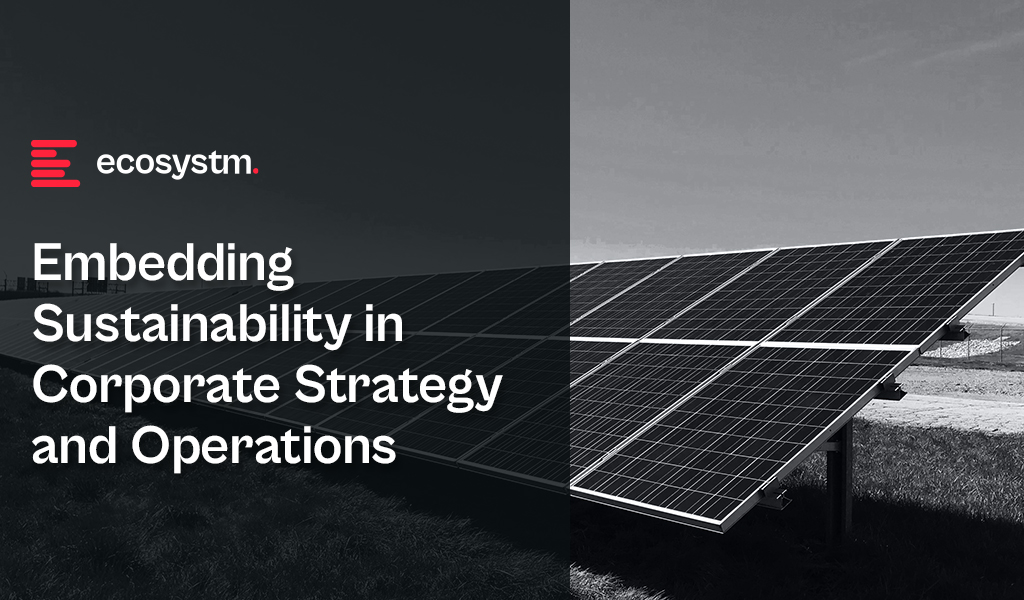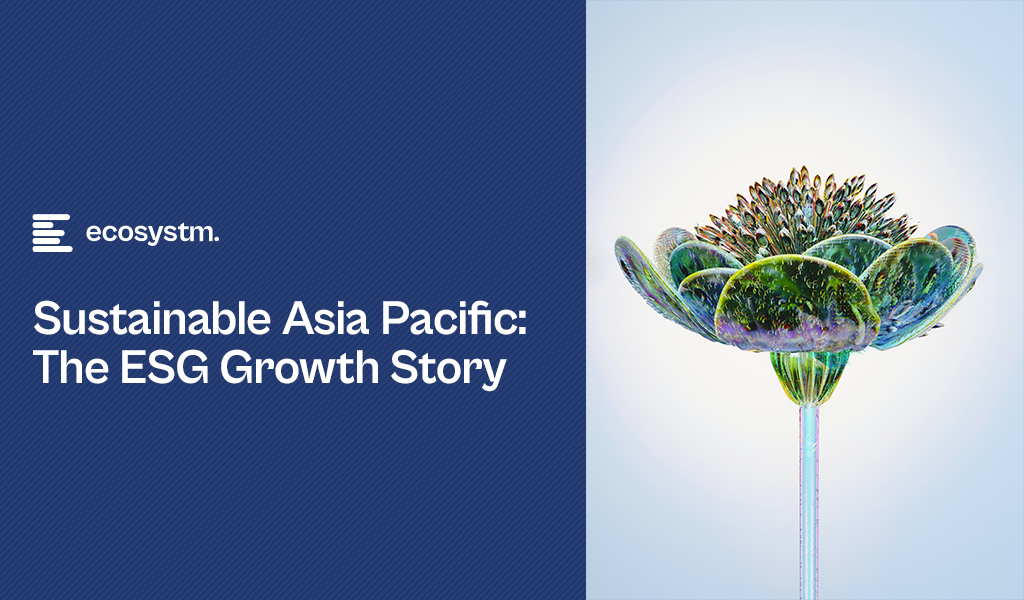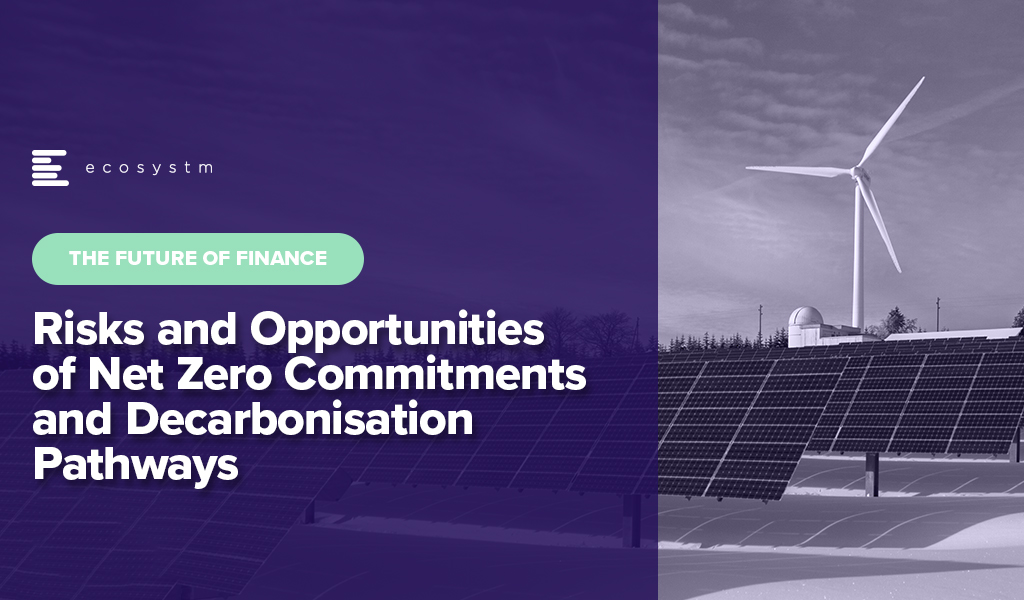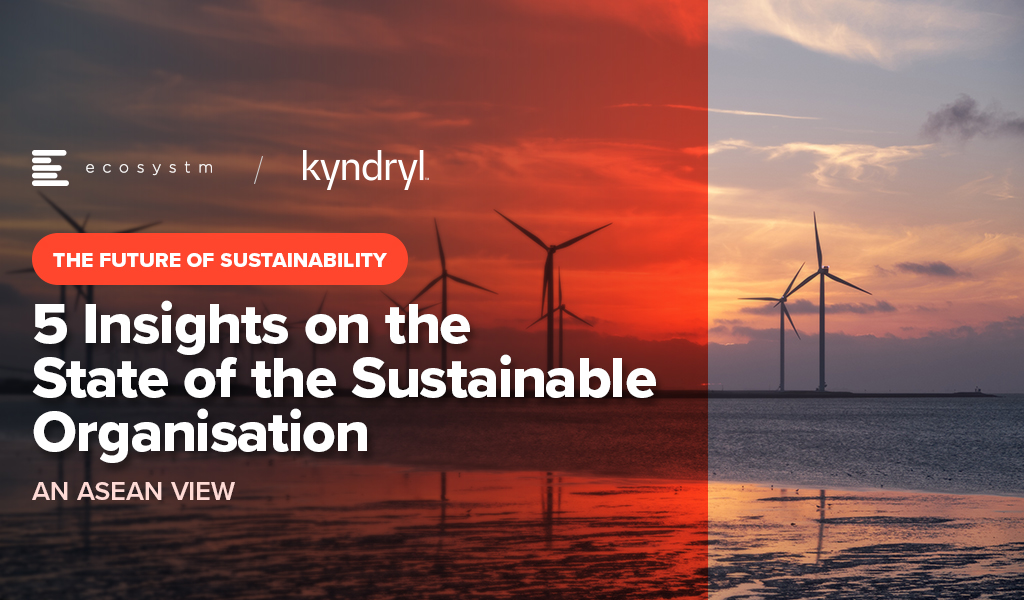In our previous Ecosystm Insights, Ecosystm Principal Advisor, Gerald Mackenzie, highlighted the key drivers for boosting ESG maturity and the need to transition from standalone ESG projects to integrating ESG goals into organisational strategy and operations.
This shift can be difficult, requiring an alignment of ESG objectives with broader strategic aims and using organisational capabilities effectively. The solution involves prioritising essential goals, knitting them into overall business strategy, quantifying success metrics, and establishing incentives and governance for effective execution.
The benefits are proven and significant. Stronger Customer and Employee Value Propositions, better bottom line, improved risk profile, and more attractive enterprise valuations for investors and lenders.
According to Gerald, here are 5 things to keep in mind when starting on an ESG journey.
Download ‘Embedding Sustainability in Corporate Strategy and Operations’ as a PDF

The ongoing Ecosystm State of ESG Study throws up some interesting data about organisations in Asia Pacific.
We see ESG more firmly entrenched in organisational strategies; organisations leading with Social and Governance initiatives that are easily integrated within their CSR policies; and supply chain partners driving change.
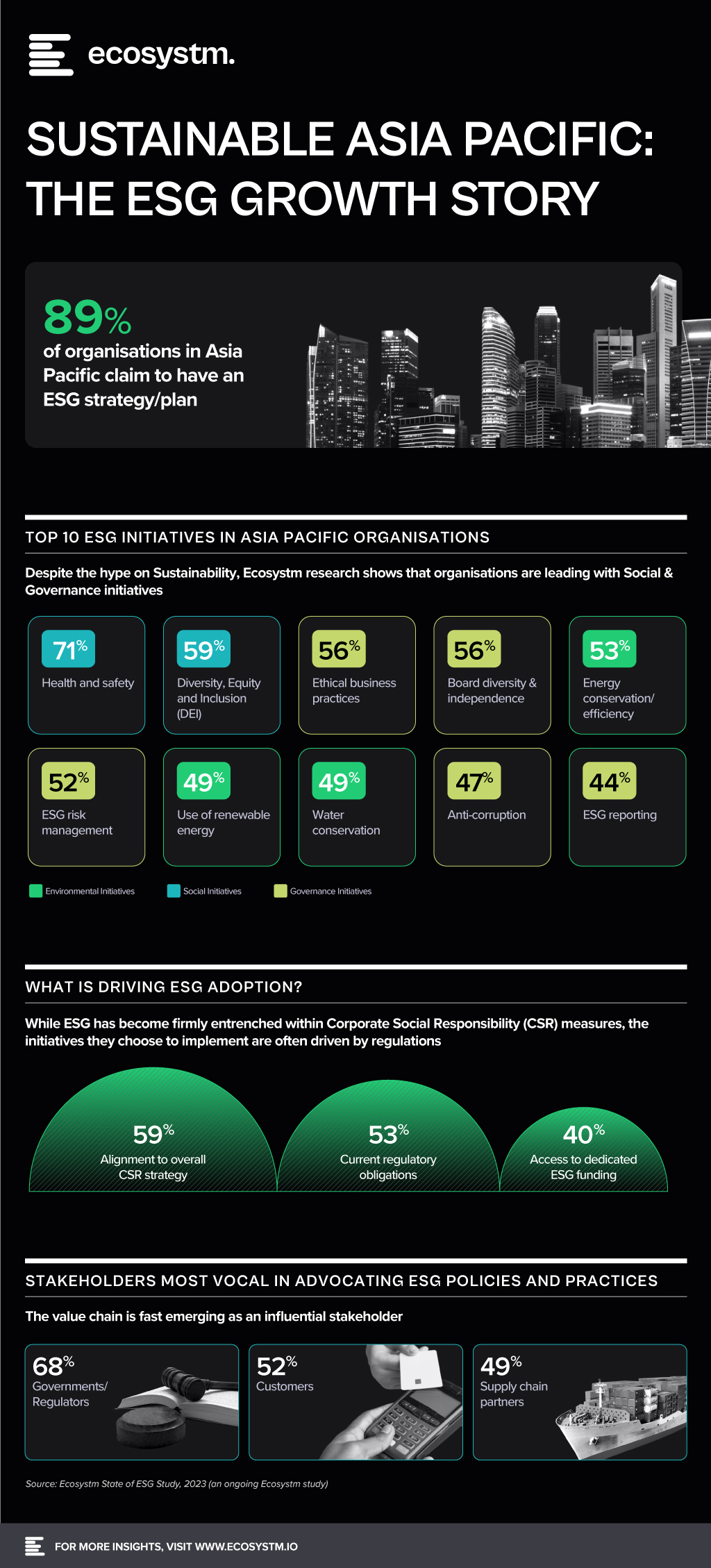
Download ‘Sustainable Asia Pacific: The ESG Growth Story’ as a PDF

Ecosystm supported by their partner EY, conducted an invitation-only Executive ThinkTank at the Point Zero Forum in Zurich. A select group of regulators, investors, technology providers, and senior leaders from financial institutions from across the globe came together to share their insights and experiences on the practicability, regulatory support, and implications of sustainable finance portfolios.
Here are some of the key takeaways from the ThinkTank.
- The Barriers to a Sustainable Future. The first step towards a sustainable future is recognising the challenges organisations face when pursuing Net Zero targets. Often, Net Zero targets are looked upon as additional costs.
- Overcoming the Challenges. It is important to connect Net Zero back to business goals, given that there might be sudden shifts in regulations and because of the emergence of environment-conscious consumers.
- A Sustainable Future Requires a Collaborative Approach. Global governments, regulators, Financial Services institutions, other enterprises, and technology providers need to collaborate on building a sustainable future.
- A Time for Simplification. Clear mandates on reporting climate aspects similar to how financial aspects are reported, will result in greater adoption of sustainability and ESG measures.
- The Role of Digital Architecture. The path to a Net Zero, decarbonised world will be technology-led.
Read below to find out more.
Download Risks and Opportunities of Net Zero Commitments and Decarbonisation Pathways as a PDF

Organisations are being driven to develop and demonstrate an ESG consciousness and a sustainability commitment in their actions and investments – by their customers, investors and by governments’ sustainability mandates. Early adopter organisations often realise several benefits – from achieving better financial outcomes to creating competitive differentiation. However, more organisations need to get serious about their sustainability journeys – and as regulations firm up, organisations will be forced to report on their sustainability initiatives.
The Ecosystm Kyndryl ASEAN Digital Transformation Study 2022 was launched earlier this year to understand the pulse of C-level leaders and the business and technology transformation goals of organisations in the ASEAN region. This included a closer look on where organisations stand when it comes to setting sustainability goals and strategies, and their key challenges.
Here are 5 insights on the state of the Sustainable Organisation in ASEAN.
Download 5 Insights on the State of the Sustainable Organisation – An ASEAN View as a PDF



